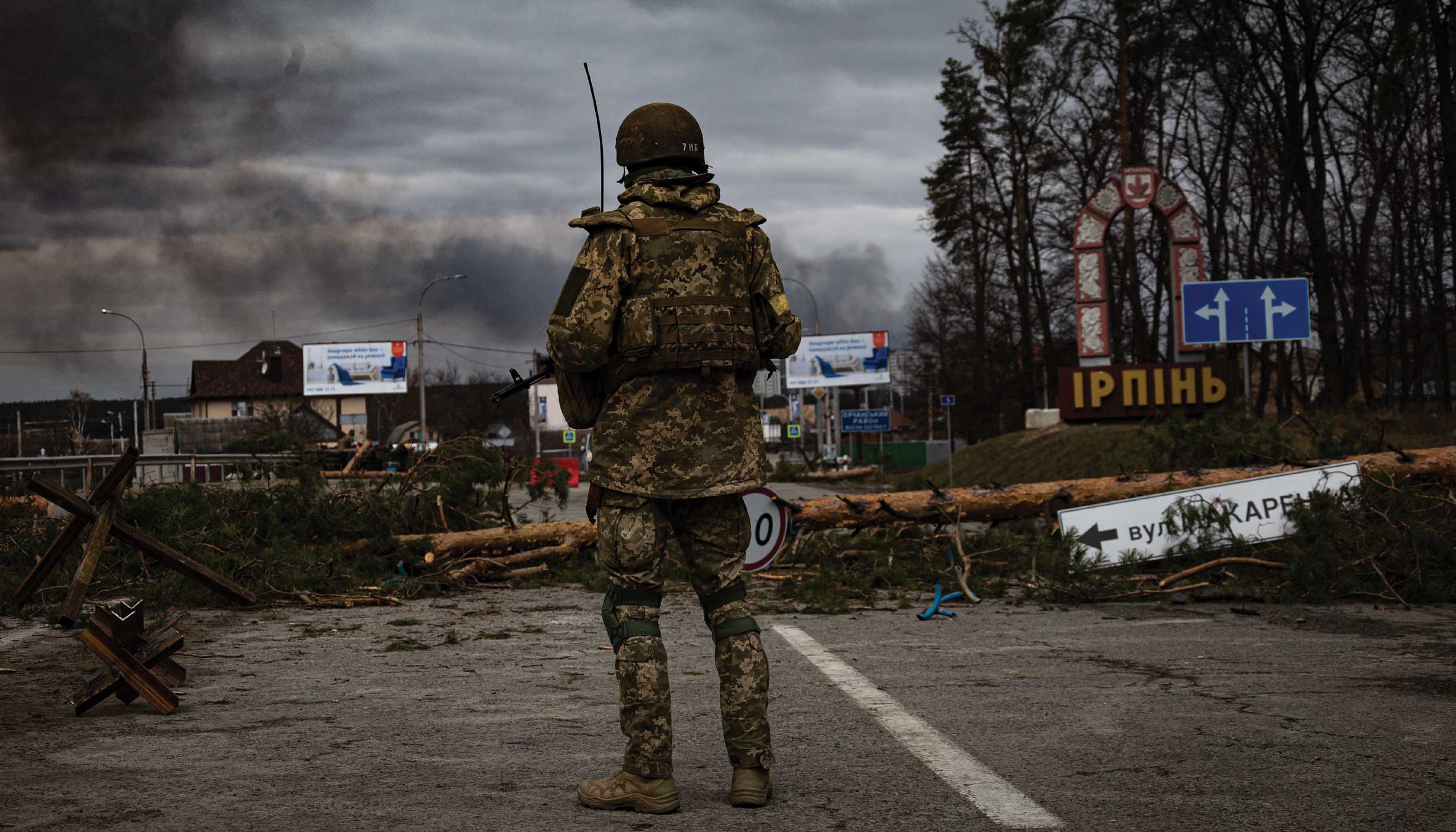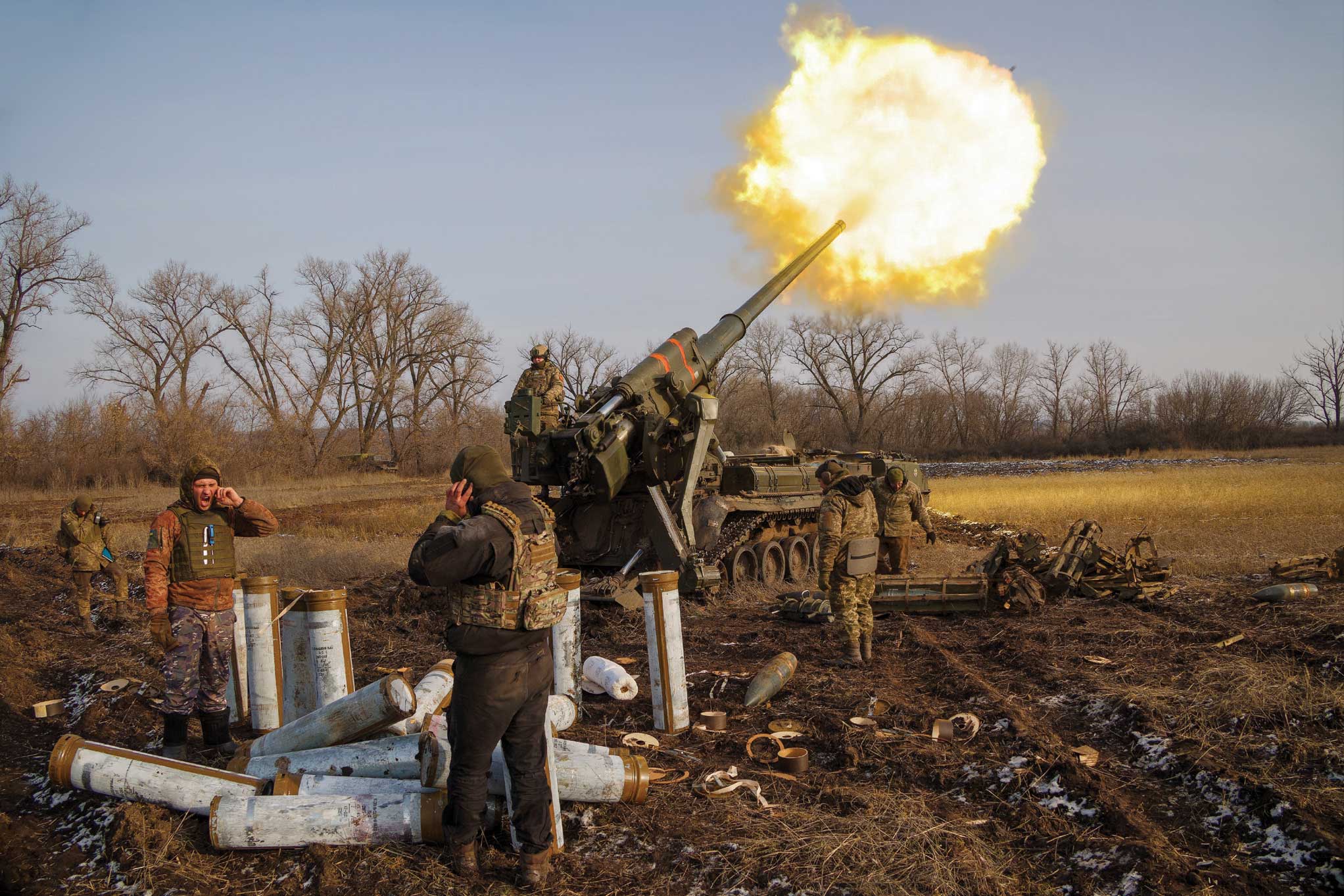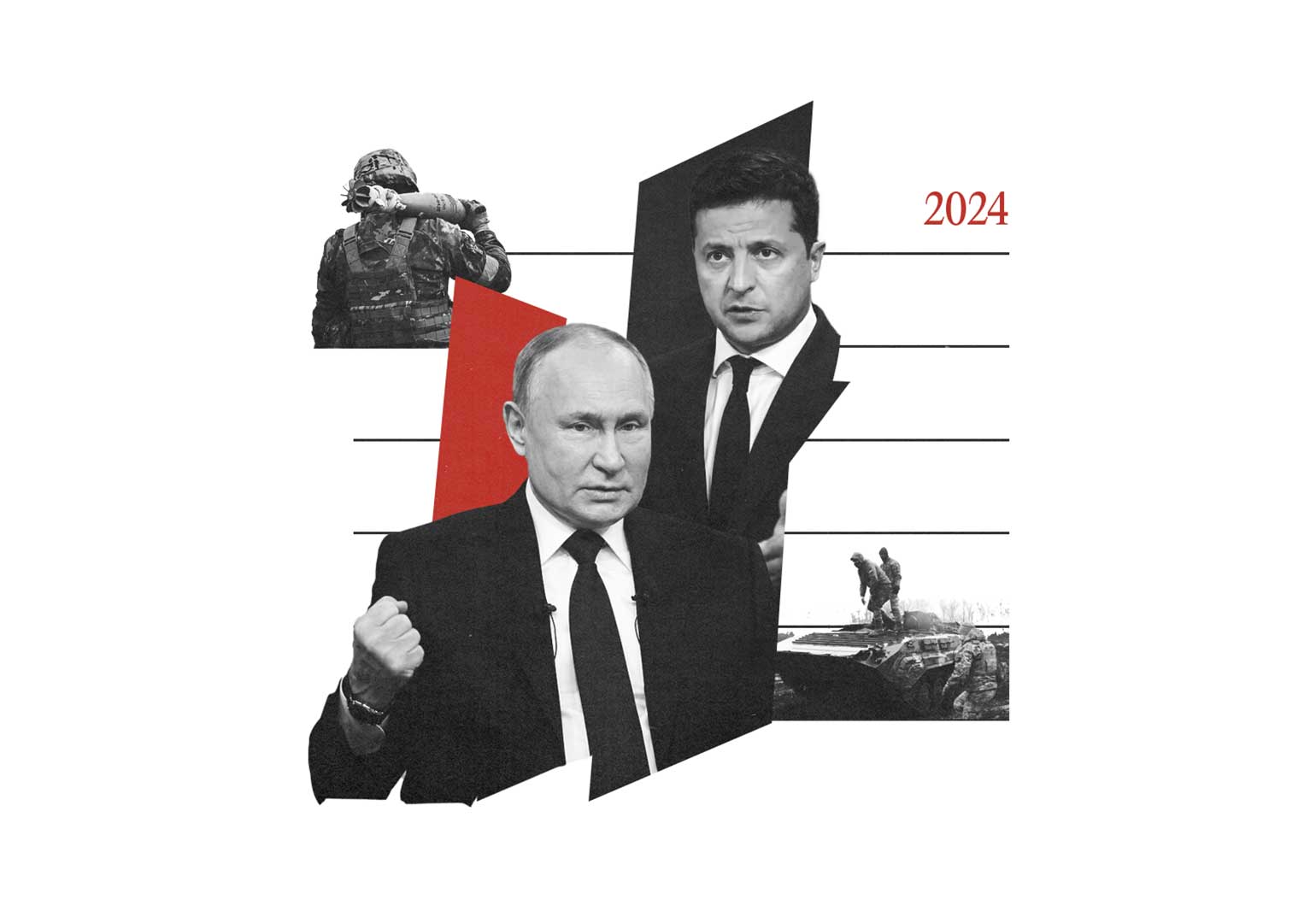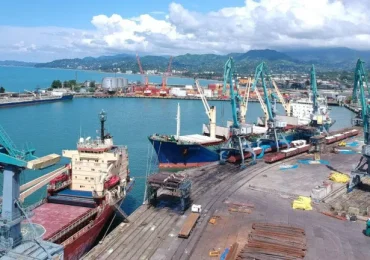“Victory will be ours” was the phrase flashing on a giant screen behind Vladimir Putin as he addressed his generals at an expanded meeting of the Defense Ministry Board on 19 December. Indeed, for the first time since the initial phase of the full-scale invasion, there was a sense that Russia was winning the war against Ukraine.
The Ukrainian counteroffensive is over. The campaign did not live up to the exaggerated expectations that the international media created around it with the “help” of Ukrainian spokespeople. The battlefield shapes politics, and momentum affects morale. Ukraine is no exception. As expected, the failure of the Armed Forces of Ukraine led to a proliferation of skeptics and amplified their voices.
December was a difficult month for Volodymyr Zelenskyy. The president’s main task was to secure $115 billion in aid from his main allies, the European Union and the United States, before the end of the year. In both cases, he was unsuccessful: The U.S. Congress will head into the Christmas break without passing the Ukraine funding bill. Once Ukraine’s largest and most dependable ally, the U.S. has been causing many headaches for the Kyiv government more recently. As for the EU’s €50 billion package, Viktor Orban blocked it. The decision by the Council of Europe to open EU accession talks with Ukraine has partly eclipsed the bad news and improved the mood in the country.
“There was a steady stream of military aid in the spring. Now it has been reduced to teardrops,” a Ukrainian official said last summer. For Ukraine, military aid has existential importance. For next year’s budget, the government needs $41.5 billion in foreign assistance to cover pensions, military and public sector salaries, and other service costs. Against this background, international aid for Ukraine has been decreasing and reached a historic low in autumn. According to Kiel University, new pledges of financial assistance to Ukraine fell by 87% in the August-October 2023 period, with only 20 countries pledging assistance. Without foreign aid, Kyiv will be forced to start printing money, which is never good for financial stability.
The reduction in Western aid had an immediate visible effect on Vladimir Putin’s confidence and optimism levels. Forgotten terms such as “demilitarization” and “denazification” found their way back into the Russian leader’s vocabulary, together with the promise that “there will be no peace until Russia achieves its goals.”
Putin’s confident and calm rhetoric contrasts with the Ukrainian president’s tactics. Since the start of the war, Zelenskyy has consistently employed positive communication. “Nobody believes in victory as much as me,” he said in his high-profile TIME article, insisting that the fighting has not hit a dead end and that Ukraine can still recover all the territory it has lost since 2014. Convincing the Ukrainian population is becoming increasingly complex, though, especially since the head of the Armed Forces, Valerii Zaluzhnyi, confirmed a shift to a “positional stage of the war.”
According to the Ukrainian general, a certain parity has been reached, and the technologies and resources available in this conflict will not allow either side to achieve a crucial breakthrough in a brief period of time. Structurally, this is precisely why the Ukrainian forces were unsuccessful in their counterattack.
Having postponed the campaign several times, AFU’s long-awaited counteroffensive finally began on 4 June in the Zaporizhzhia Oblast, where it was most expected. The lack of a surprise effect was only one of many problems with the counterattack plan, although, unlike the other failings, this one was caused by natural conditions.
According to many military experts, other decisions made by Ukraine’s political and military leaders, which reduced the chances of success of the counteroffensive, were far from inevitable. Naturally, in a complex war between two large states, nothing is determined by one factor alone. Even more so, considering that the Ukrainian army, without air superiority, faced three fortified defensive lines stretching for hundreds of kilometers that the enemy had nine months to prepare.
According to U.S. military doctrine, such operations cannot be launched, even in theory, without air superiority. In the case of the AFU, the uphill task was further complicated by the choices made by the Ukrainian leadership. Senior fellow at the Carnegie Endowment for International Peace and respected military expert Michael Kofman believes that the lengthy defense of Bakhmut was one such costly decision.
It was widely reported that Western military consultants advised the Ukrainians to withdraw from Bakhmut and save their forces for a future offensive campaign. This view was shared by the troops and officers I spoke to near Bakhmut last February.
The loss ratio in Bakhmut was in Ukraine’s favor, but the quality of the losses disproportionately affected the defenders. While Russia was mainly losing recidivists recruited by PMC Wagner, the Ukrainian lines were operated by experienced, battle-hardened troops. The Ukrainian political leadership assigned crucial political significance to Bakhmut and decided to continue defending the city even after this course of action became irrational from a military point of view.

Given that the most experienced brigades were fighting and dying in Bakhmut, the focus for the counteroffensive shifted towards creating new brigades. Up to 70% of the soldiers in these brigades had been mobilized and lacked the most basic military experience. Thus, the best Western weaponry found itself in the hands of the most inexperienced units, which had to break through the most fortified section of the front. Moreover, these brigades had a total of three months of training, which is not enough time to create a professional military unit.
Some believe that the decision to launch the attack in three directions simultaneously and the resulting confusion of the Ukrainian forces contributed to the failure of the operation. The Russian army also played a key role by implementing changes – an increased use of drones, more accurate artillery fire, and an effective use of tactical aviation. Despite the widespread anecdotal and often well-founded perceptions of the Russian military’s unprofessionalism, the fact is that despite its many mistakes, the Russian army is adapting, changing tactics, and learning, most notably from Ukraine.
As expected, the effect of exaggerated expectations was more stinging after it finally became clear that the counteroffensive had failed. It is said that victory has many parents, but no one wants to assume parenthood of a conflict that has reached a dead end. Against this background, friction between Volodymyr Zelenskyy and Valerii Zaluzhnyi began to surface. According to press reports in Ukraine, the president often ignores Zaluzhnyi when communicating with the generals, and the head of the AFU sometimes receives information about Zelenskyy’s personnel decisions from the media. After a period of total unity, politics has returned to Ukraine, and the mood has darkened.
These developments contrast with the situation in Russia, where politics is long dead, and Putin’s home front is quieter than before. Prigozhin’s rebellion and subsequent tragic end paradoxically strengthened Vladimir Putin’s grip on power.
The ongoing war against Ukraine created new opportunities for the Russian elite and cemented their loyalty to Putin. The general population is being fed the narrative of the “historical struggle with the West.” Against the background of anomalous poverty in provincial Russia, the generous salaries and compensation offered by the army create a great mobilization resource. For several months, Russian oil has been selling above the price ceiling imposed by the West, providing enough cash flow to finance the war.
The Russian economy is already operating in wartime mode. The country has started mass-producing drones and other critical weapons. Russia will manufacture more artillery shells in 2024 than the United States will in 2025. Military spending exceeded social spending for the first time and will equal 6% of the country’s GDP next year. Against this backdrop, the economy is growing, but increased costs and labor shortages have exacerbated inflationary pressure.
Some economists believe the Russian economy is on the verge of overheating and may face severe problems in 2025, but it would be foolish to hope for a magical overthrow of the regime. There are more important things in Russia than economic stability.
Given the above, Russia is starting the new year in a better position than Ukraine. The Russians will likely have an advantage in the number of drones, shells, and electronic warfare systems. Another advantage for Russia is its high tolerance for losses. Having said that, Russia’s advantages are neither decisive nor inevitable – having an advantage does not automatically mean it will materialize.
Victory in war is determined not by occupation of territories but by endurance. Despite the increased skepticism, the fact is that neither army can convincingly defeat the other. The attacks launched by Russia in October are proof of this – in just one section (Avdiivka), the Russian military is losing 900 soldiers per day, and progress is, at best, modest.
This war is defensive, meaning the confrontation will continue for a long time. It gives the West the necessary time to make and implement strategic decisions – delayed decisions.

On paper, the military and economic potential of the West and Russia are incomparable. The West’s superiority is devastating, but the problem is that Russia is more determined. While the West follows the path of consensus and compromise, decisions in Russia are made quickly, with less time needed for economic and military mobilization.
Putin’s primary strategy is to wait and wear down the West, and his best bet in this game is the 2024 elections. Next year will be the most significant election year in history. From Taiwan to the European Parliament, the Kremlin will try to have its hands everywhere, but the focus will be on the U.S. presidential election. As of now, Congress is controlled by a group of isolationist Republicans, and despite the presence of a pro-Ukraine majority, the issue is still lingering.
Naturally, all this favors Vladimir Putin, under whose rule Russia has become a fully-fledged revisionist power, a much more revisionist player than the Soviet Union of the Age of Immobility. By launching a full-scale invasion of Ukraine, Putin set the stage for a global wave of revisionism.
According to revisionist logic, each failure of the West to contain Russia and each tactical retreat in Ukraine, Syria, Africa, or elsewhere is another step on the way to the destruction of the West’s geopolitical dominance. Revisionists benefit not from their own comparative advantage but from the hegemon’s lack of strength.
The reality is that the West does not have the option of freezing the Russia-Ukraine conflict on safe terms and without cost – getting tired of helping Ukraine and cutting off aid would be a sign of Western weakness and create additional problems for itself. The global rise of revisionism would no longer seem like the wild fantasy of politicians in Moscow and Beijing. The West must emerge from its lethargic slumber.
Skeptics tired of war and aid to Ukraine should remember Leon Trotsky’s words and understand that “you may not be interested in war, but war is interested in you.”
Editor-in-chief of RealPolitika.

















